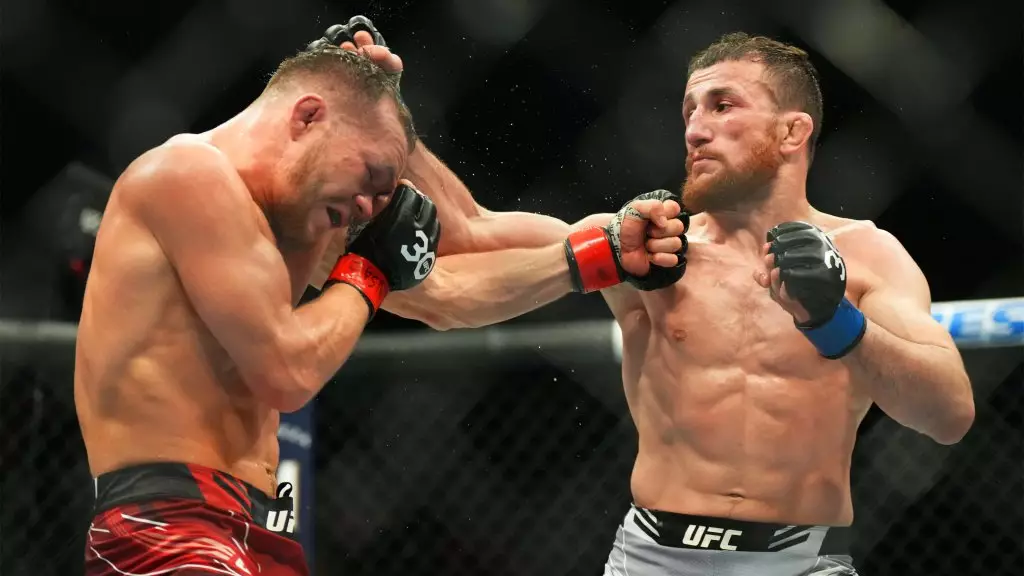The world of mixed martial arts (MMA) finds itself abuzz with recent comments made by UFC bantamweight Sean O’Malley, who has intensified his assertions that current champion Merab Dvalishvili is evading a matchup with rising star Umar Nurmagomedov. These remarks ignited a layered debate among fans and analysts regarding the dynamics of fear, strategy, and the evolving landscape of the bantamweight division.
To understand O’Malley’s bold claims, one must first look at the recent fight card where this narrative took shape. Following his impressive decision win against Deiveison Figueiredo, Petr Yan’s vocal challenge to Dvalishvili was met with enthusiasm. The former champion’s performance garnered respect, but it simultaneously reinvigorated the ongoing conversation about who truly poses the greatest threat to Dvalishvili. While Yan seems like a familiar opponent – one who has already suffered a defeat at the hands of Dvalishvili in March – Nurmagomedov represents a fresh concern for the champion.
It’s a common spectacle in sporting circles where narrative becomes king, and O’Malley has seized the moment to cast aspersions on Dvalishvili’s willingness to engage with Nurmagomedov. Such claims of cowardice not only escalate tensions within the division but also serve to elevate O’Malley’s own status within the hierarchy, positioning him as a provocateur who is unafraid to speak his mind.
Merab Dvalishvili: A Complex Character
Dvalishvili’s own style within the octagon invokes admiration yet also skepticism, particularly when it comes to his approach to fighting. Some might argue that his grappling-heavy strategy, while effective, tends to stifle the excitement that fans crave. His victories over top-tier opponents have often been characterized by grinding, decision-based wins, which leaves some fans longing for more dynamic finishes. This notion was echoed by O’Malley’s head coach, Tim Welch, who criticized the champion’s presence in the division as a potential dampener on its overall thrill factor.
Yet, one cannot completely discount Dvalishvili’s accomplishments or his keen tactical mindset. In a sport where strategy often reigns supreme, avoiding an unfavorable matchup can be seen as strategic rather than cowardly. Fighters must navigate their careers with an acute sense of timing and risk, and Dvalishvili may be doing just that.
In the high-stakes environment of the UFC, public perception can often dictate contractual decisions. O’Malley’s provocations serve more than just a personal agenda; they aim to rattle the cage of Dvalishvili and compel him into what may be perceived as a more challenging fight. The bantamweight division is fiercely competitive, with fighters keen to carve out their place in an ever-evolving hierarchy. Each fighter’s choices can lead to a ripple effect that influences matchmaking, title shots, and promotional opportunities.
While accusations of fear might resonate with the audience, they also distract from the multifaceted nature of fighting in the UFC. Whether Dvalishvili is genuinely apprehensive about a matchup with Nurmagomedov or strategically considering his next steps is a question without a definitive answer. As the bantamweight division continues to develop, one thing remains clear: the interplay of fighters, their strategies, and the accompanying narratives will keep fans engaged in what is undoubtedly one of the most thrilling realms of combat sports.

